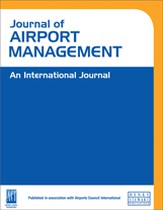Airport drop-off and pick up charges in the United Kingdom: Will they come to the United States?
Abstract
As transportation network companies (TNC) such as Uber and Lyft drive a change in modern transport behaviours, fewer passengers pay for services such as parking or commercial vehicle drop-off at airports; meaning, what once was a primary revenue source for airports now has a tenuous future. Therefore, airports must find a way to counterbalance the revenue losses created by these changes. One such solution has been on the rise in the united kingdom. With airport drop-off and pick-up charges, private vehicles must pay for the convenience of loading or unloading passengers at the airport entrance. Not only does this practice have the potential to generate millions of dollars in annual revenue, but it also offers a remedy for other maladies, such as congestion and safety issues on airport roads. This paper examines the effects the drop-off and pick-up charges have had in the United Kingdom and explores what US airports might expect should they too adopt the practice.
The full article is available to subscribers to the journal.
Author's Biography
Emma J. Nix is a graduate student in Economics and Public Policy Administration at the University of Missouri — St Louis. She worked as a graduate research assistant in the Center for Transportation Studies at the university, where she conducted research on the economic impacts of transportation-related projects. This topic was one of her assignments.
Ray A. Mundy is the executive director of the Airport Ground Transportation Association and Director of the Center for Transportation Studies and Barriger Endowed Professor of Transportation and Logistics at the University of Missouri — St Louis. He is the editor of the Airport Ground Transportation Insights, which is published monthly by the Airport Ground Transportation Association. Dr Mundy has authored numerous taxi and airport industry reports, is an active lecturer at national transportation and logistics seminars, and is a frequent contributor of papers to trade publications and journals.
